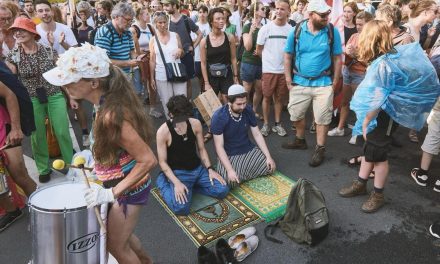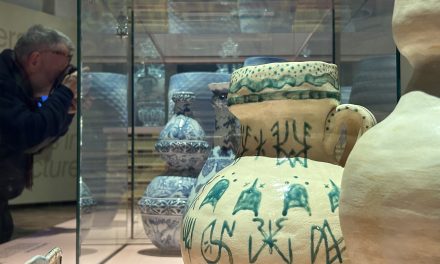It’s exactly eleven am on Monday when the bright red shutters, leading to the giant halls of RAI Amsterdam, start rolling up. Tens of people, mostly women, wait eagerly by the entrance, while hundreds more sit and watch opening of the day on the main stage. The moment the rolling shutters are halfway up, the first people start rushing into the brightly coloured fair. Time for day three of the 77th edition of the Huishoudbeurs.
Most people know the Huishoudbeurs as a typical Dutch event, for the ‘typical Dutch housewife’. Women, and a few men, from all over the country come here to get the cheapest deals and try lots of free samples. A fair at which you can buy clothes, cosmetics, cleaning supplies, kitchen supplies and just about anything else your heart desires. Everything is stored in an absolute Huishoudbeurs staple: The shopping trolley. They come in all kinds of colours, prints and sizes. They’re impossible to avoid.
One of the women filling her trolley with all the stuff she bought is Allies, a 53-year-old supermarket-cashier. “I’m here with my two daughters. We save up for this throughout the year in a joined bank account. It’s essentially just a fun outing for the three of us, which we don’t really do that often, so we make it a habit to come here.” The three women drove all the way from Kampen, which is an hour away from the capital city, and were already in line by 9:30 am.
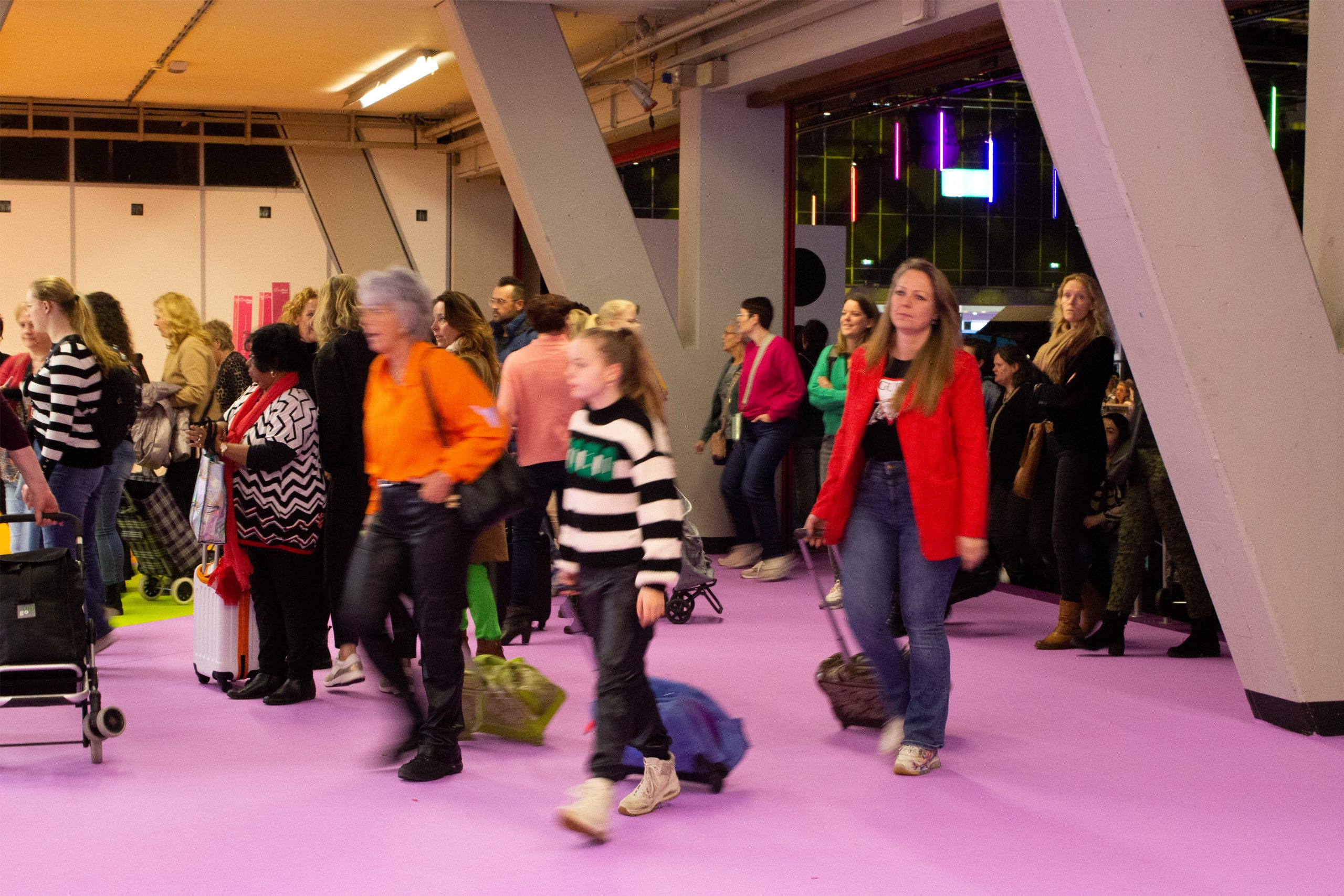
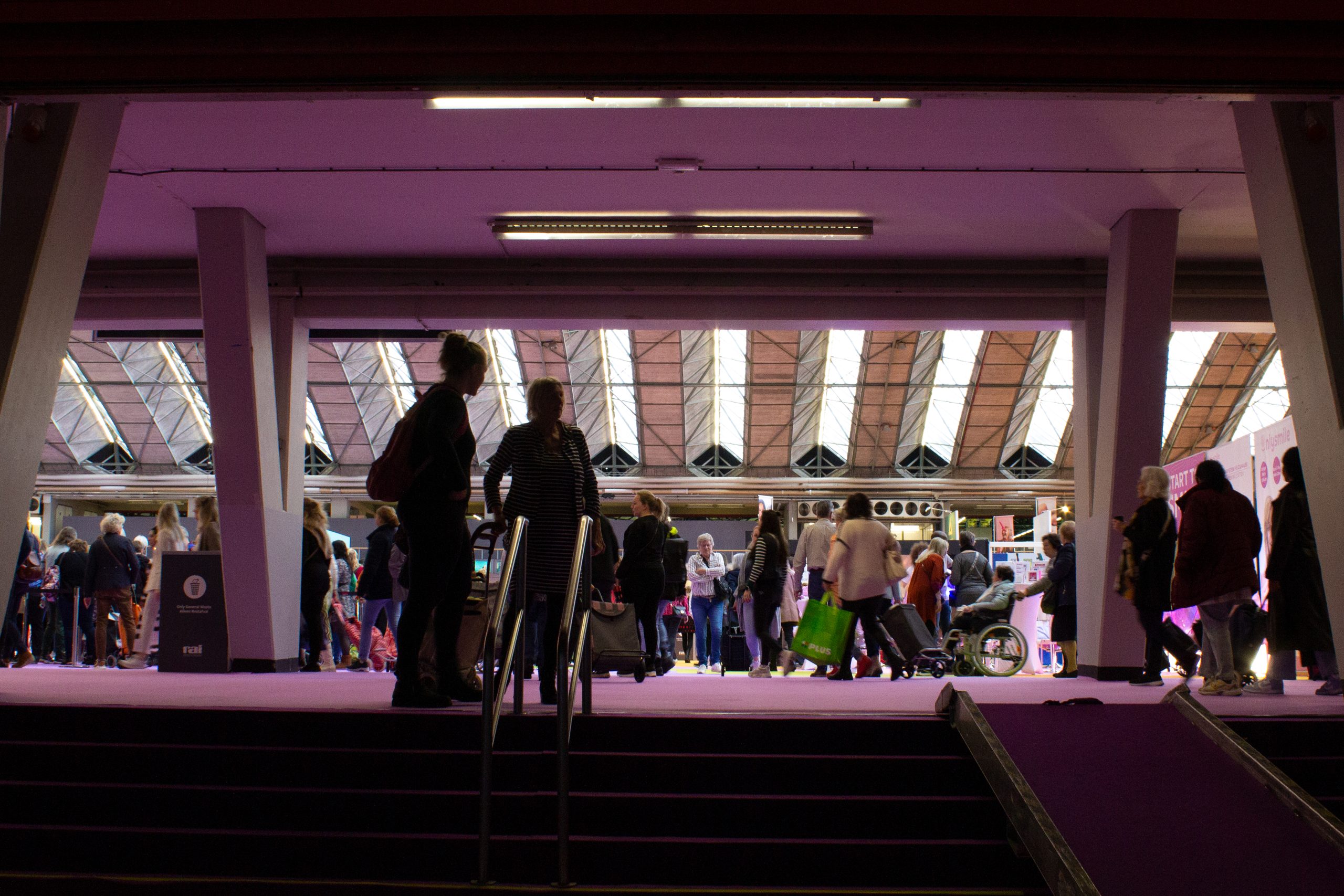
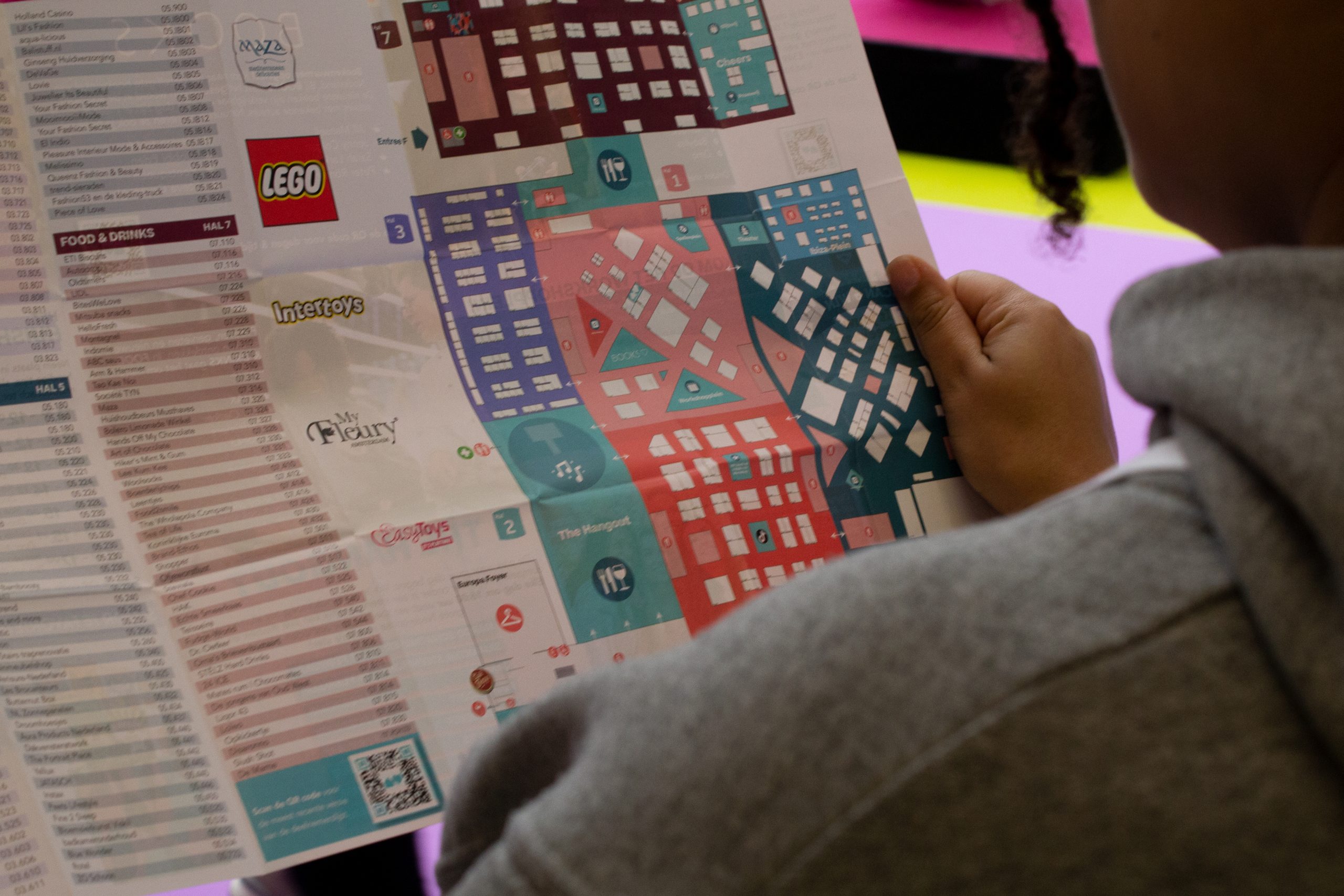
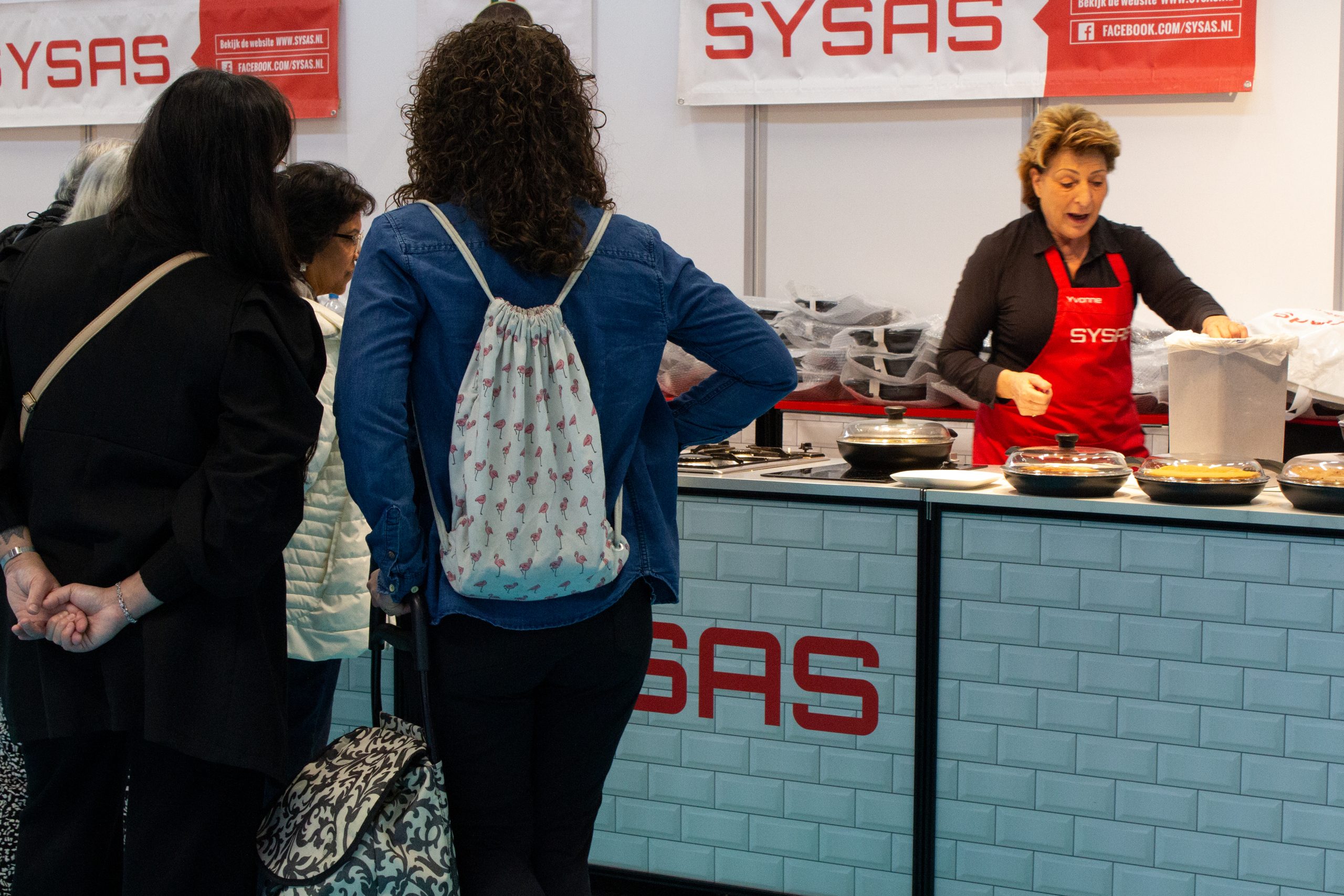
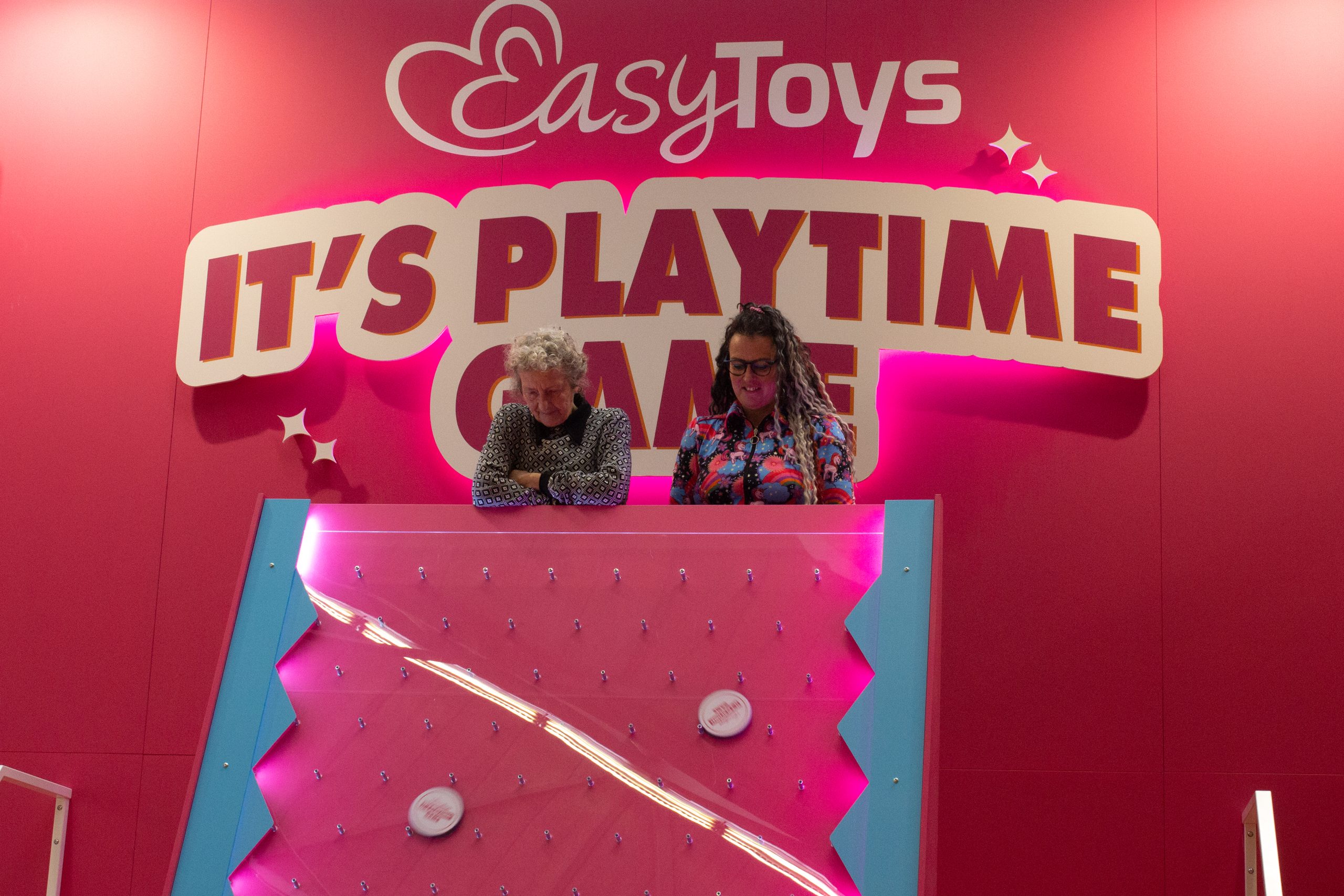
© Lara van der Weele
Sat in a different hall is Mariska (43), a Huishoudbeurs-first timer, resting on a poof with no trolley or shopping bag in sight. She’s here with her mother-in-law, also as an outing. “Coming here was a hurdle for me, because I don’t consider myself the target group at all. Now that I’m here, I am enjoying myself and I’m not afraid to admit that, but it was a big step.” Mariska is a government official. To her, the target audience is the ‘real housewife.’ “The woman who has always been at home and dealt with all household matters. That’s not me at all.”
“The ideology of the ‘typical Dutch housewife’ can be traced back to the second half of the nineteenth century, when the country started doing economically well again”, says Dr. Elise van Nederveen Meerker, professor of economic and social history. “Though the stereotype has changed massively throughout the years, it’s still there. What’s so difficult about this debate is that it’s always presented as a woman’s own choice to become a housewife. Except the preconditions for that choice are actually not the same as those of men.” While the difference is smaller than earlier years, women still earn less money than men, for the same job. “So if you as a family have to choose between one parent having to work less, or pay for daycare, which is very expensive, then it is a logical economic choice to have the woman at home a little more. And I do think it’s problematic to glorify this with things like the Huishoudbeurs, rather than tackle the problem.”
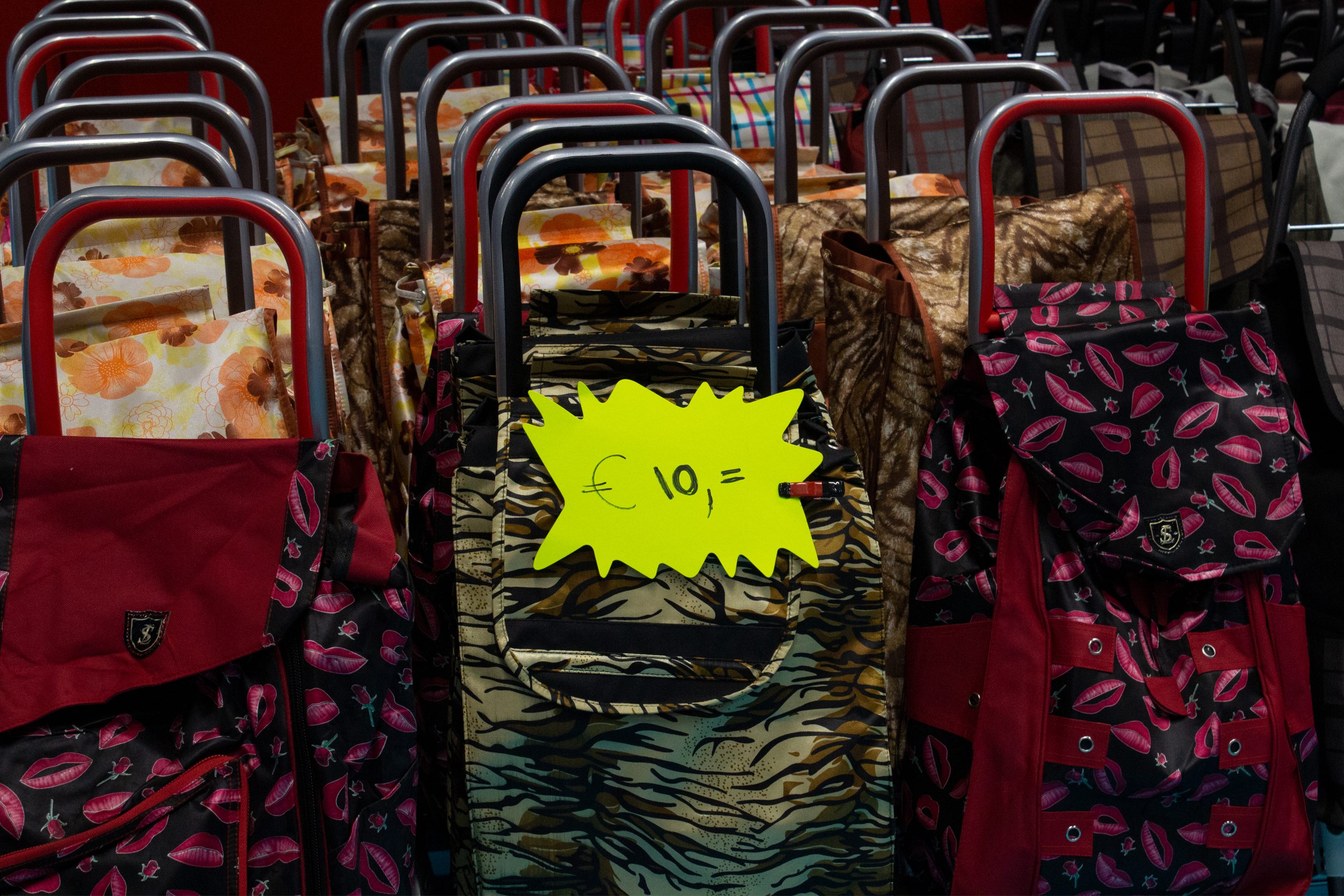
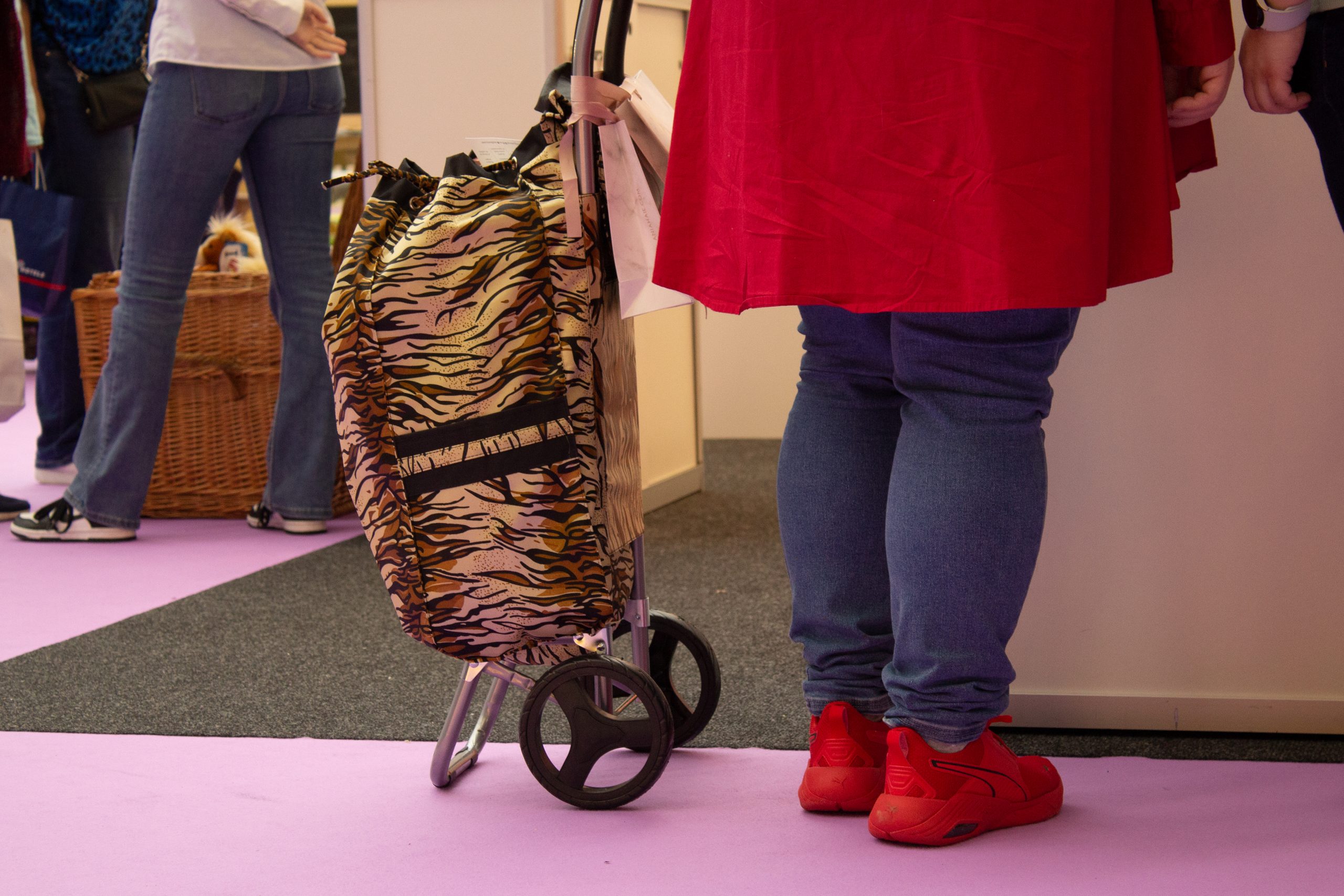
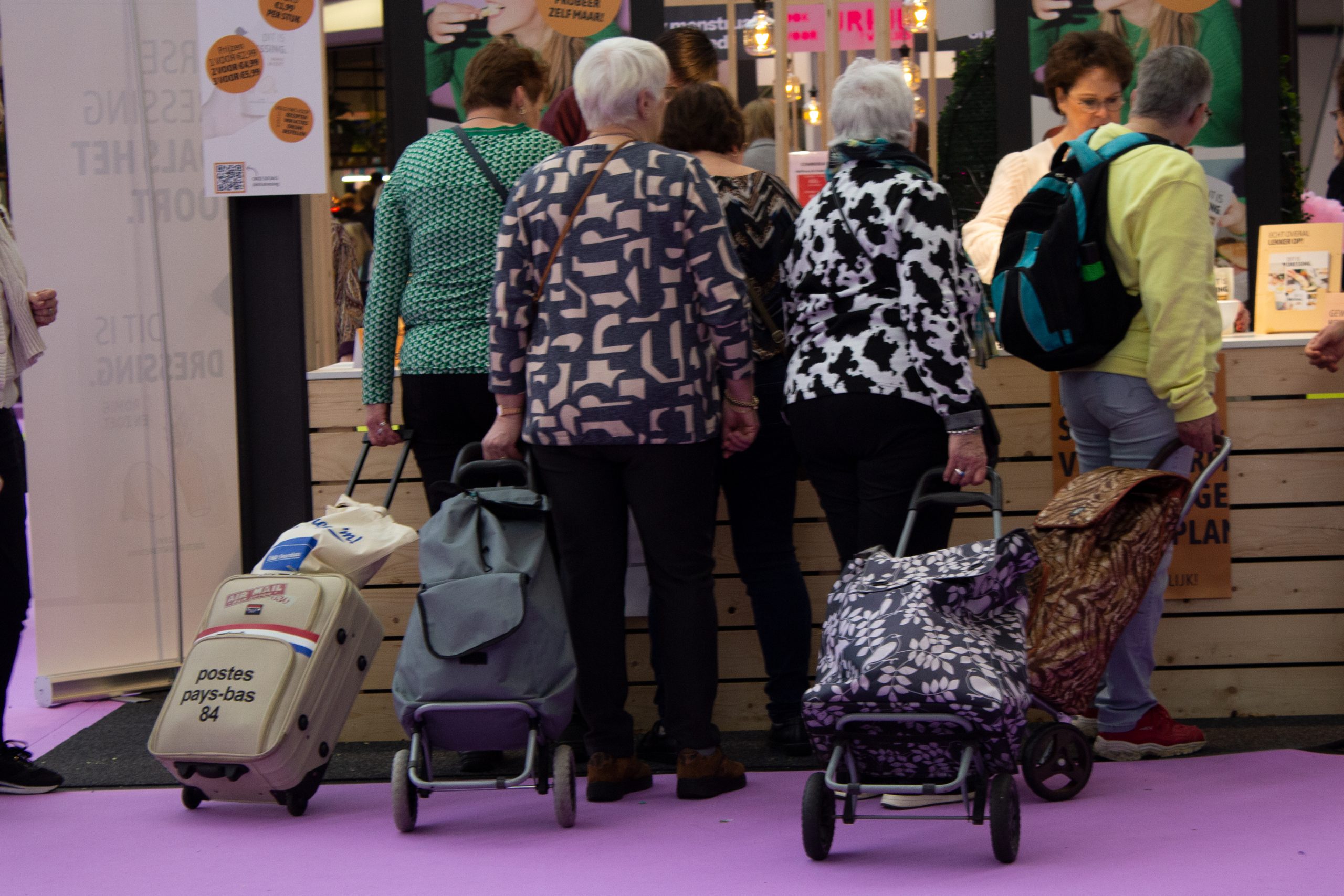
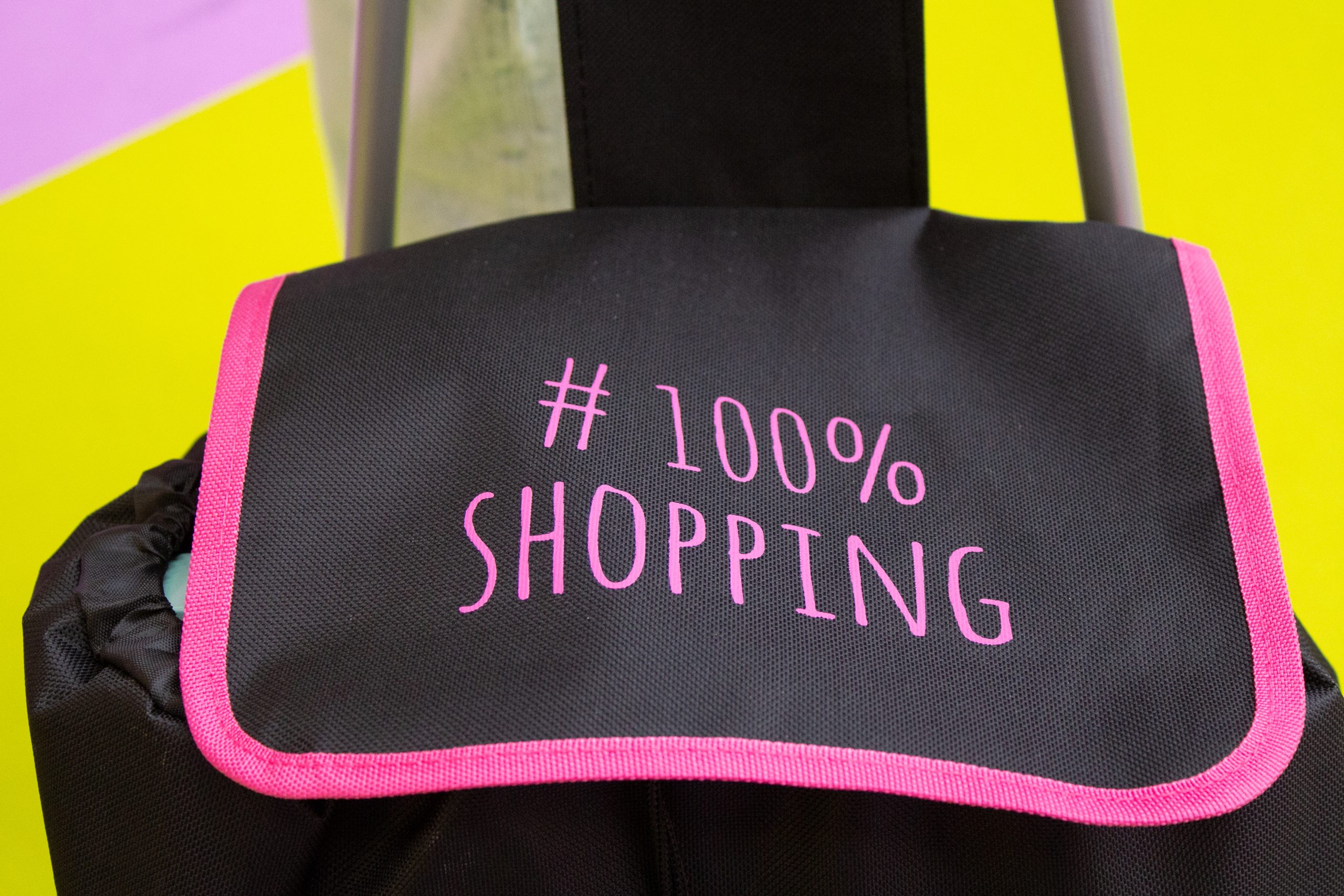
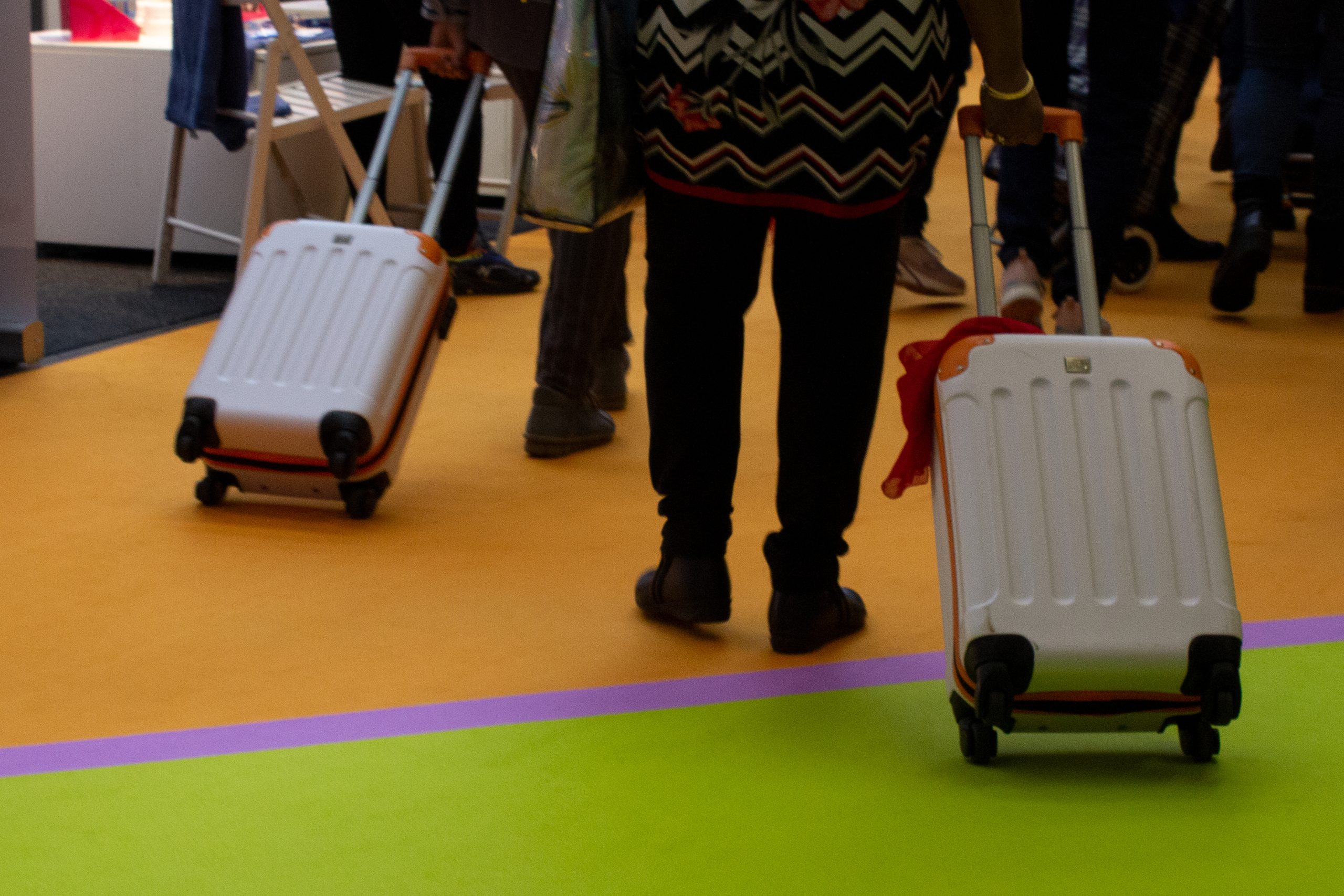
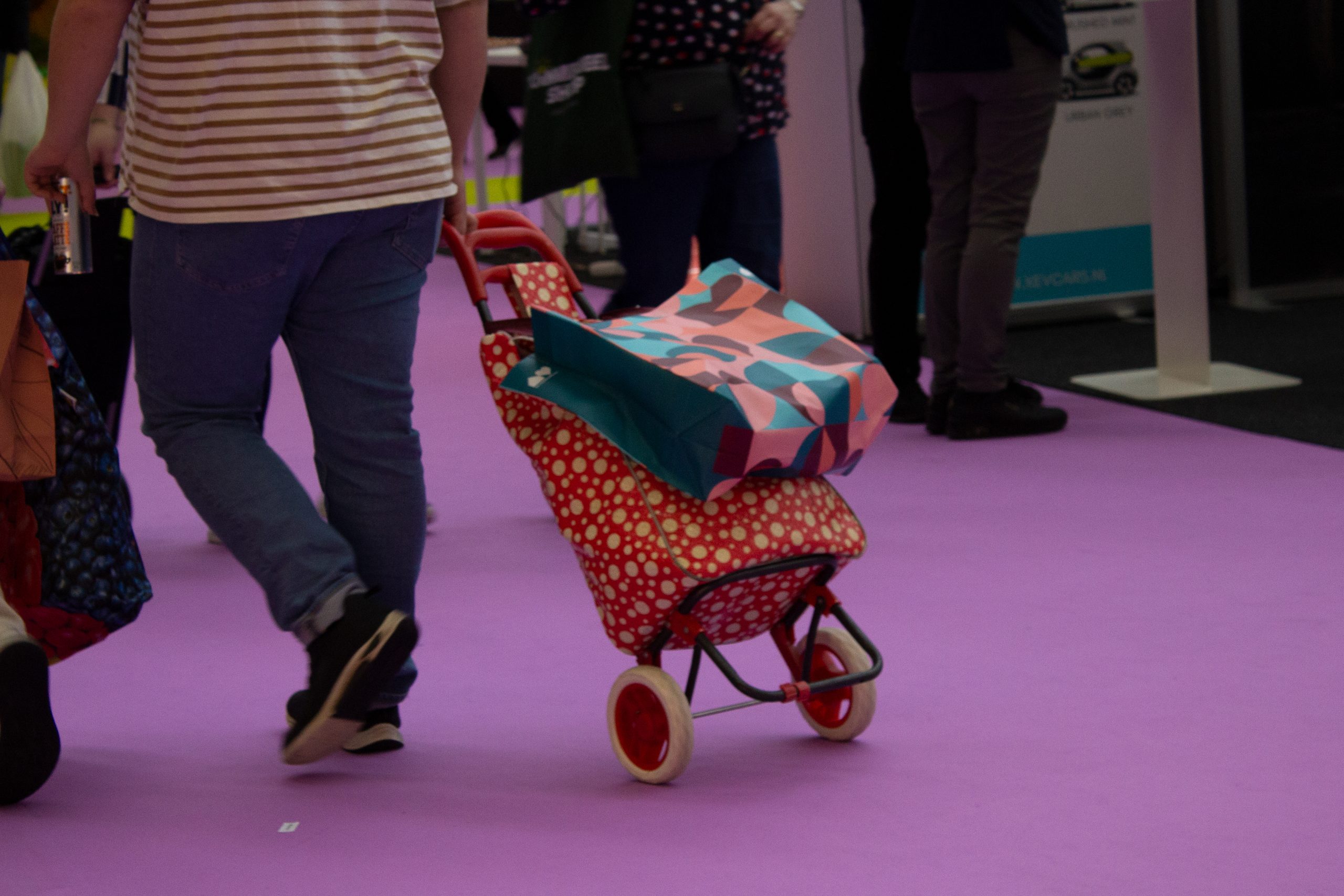
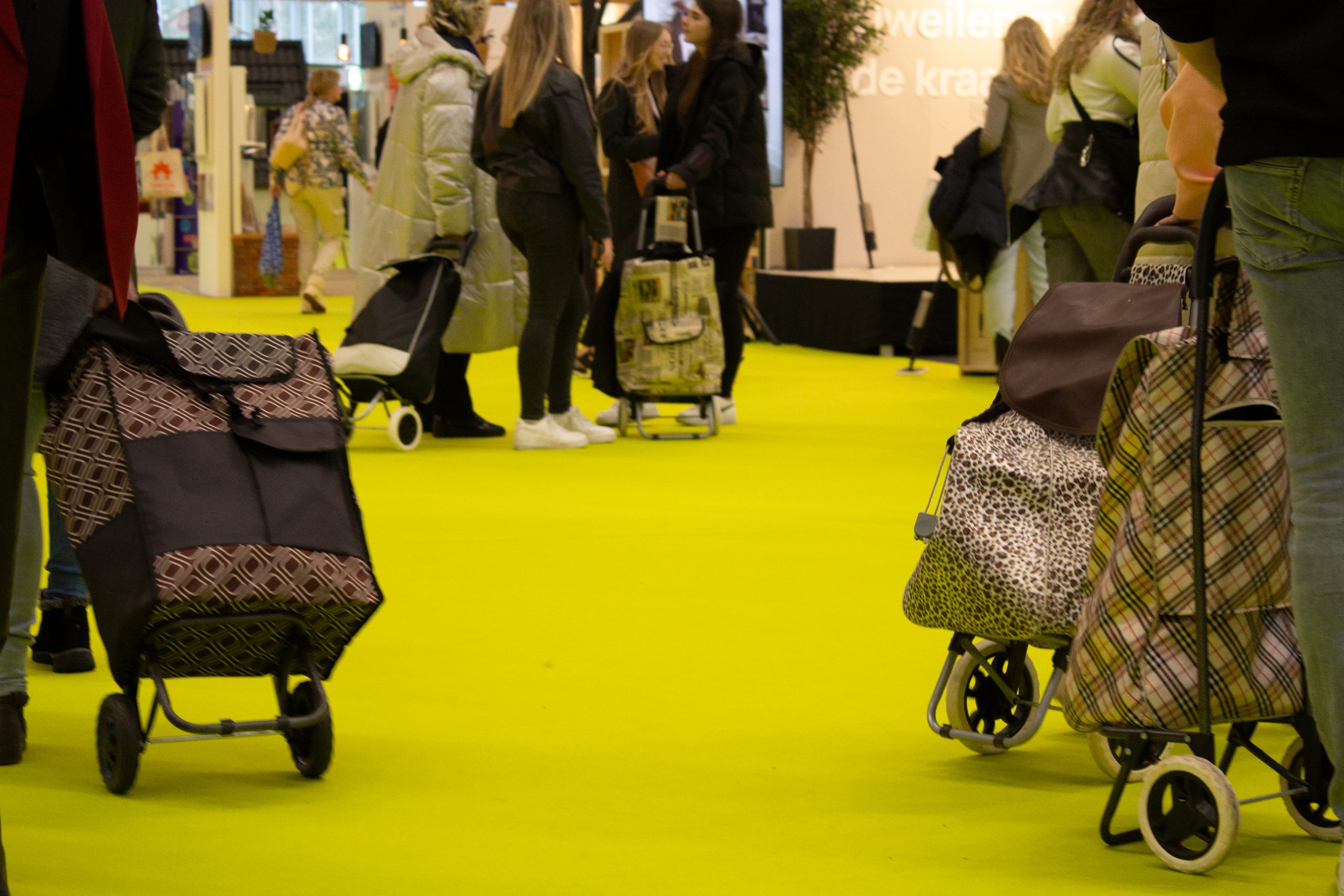
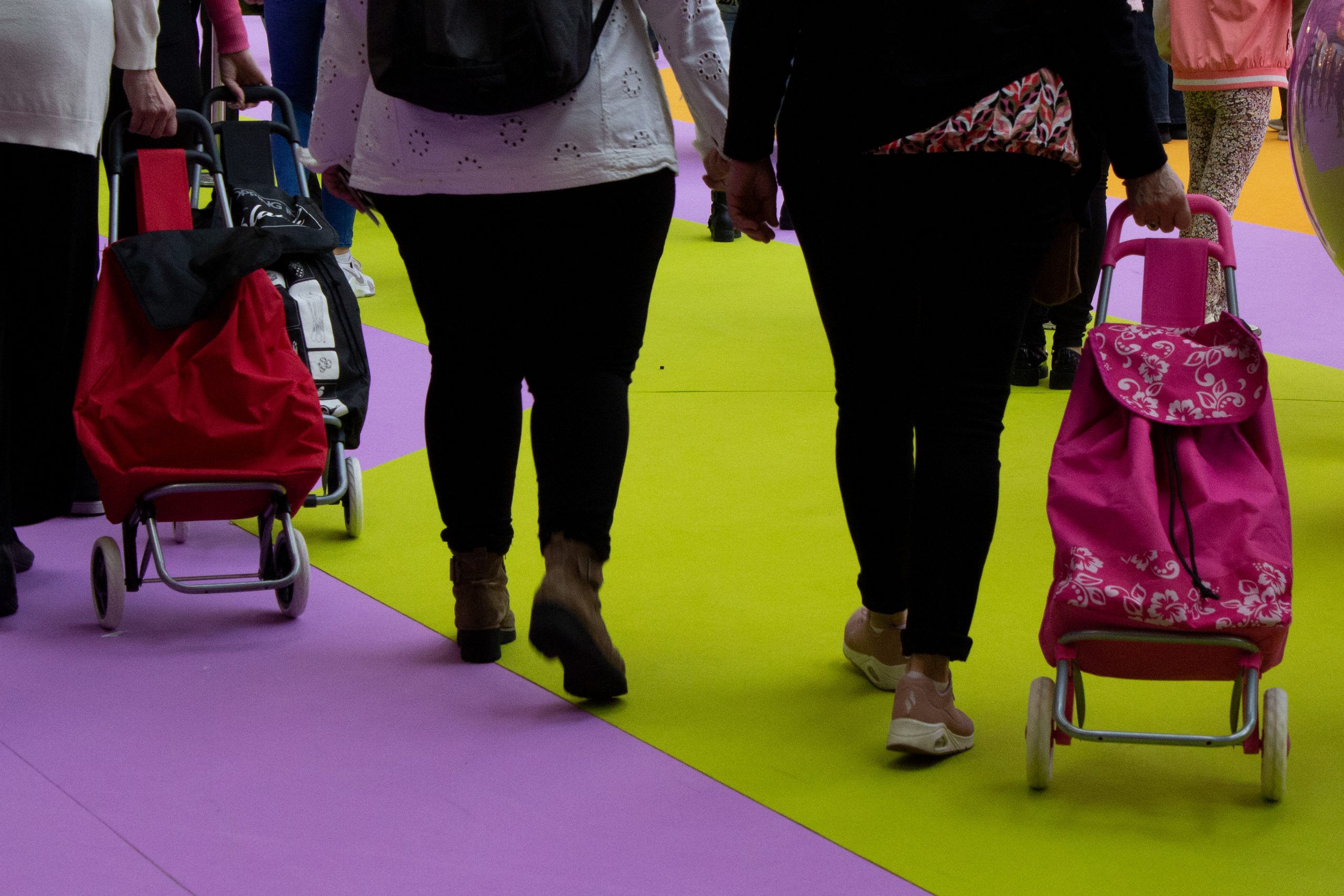
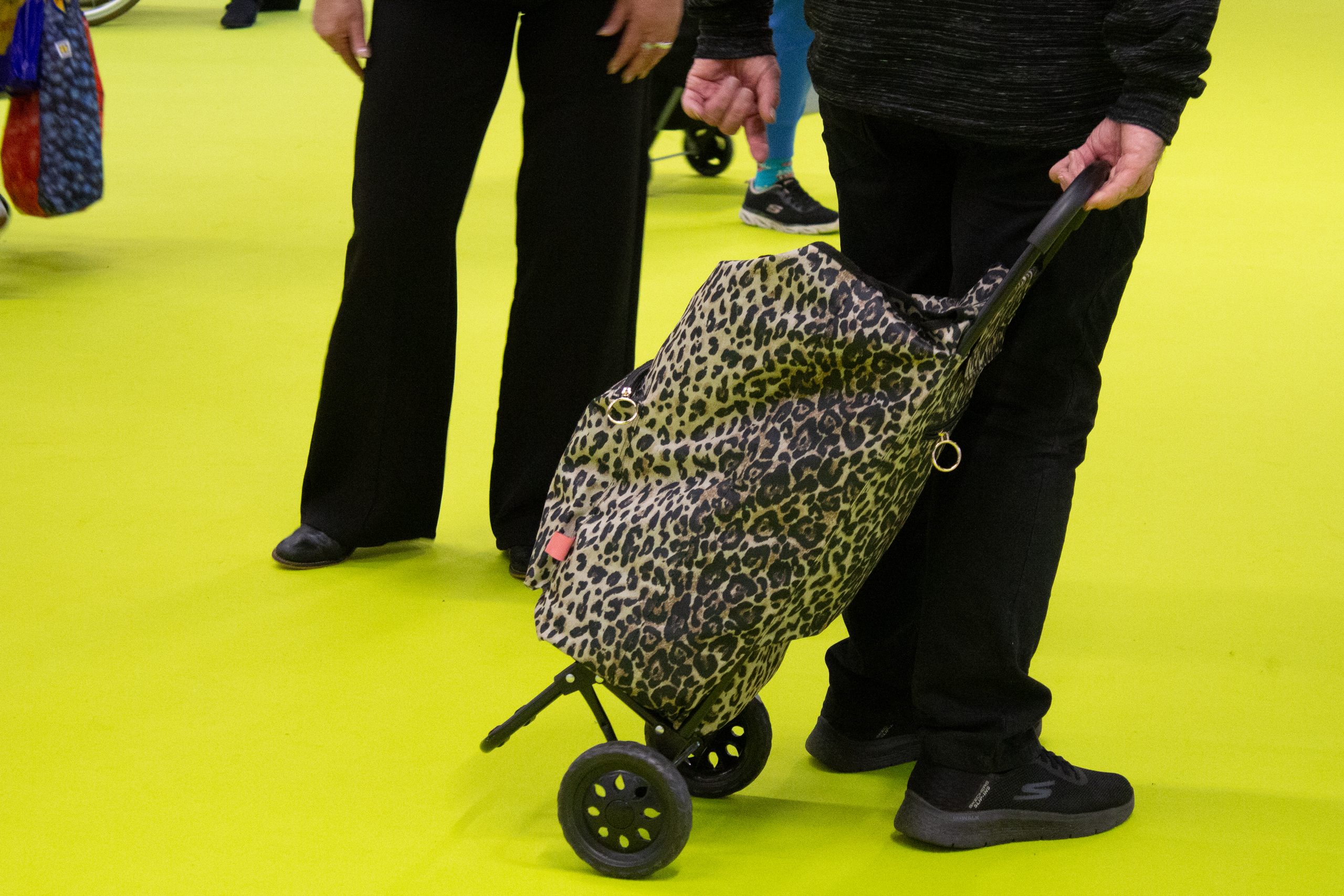
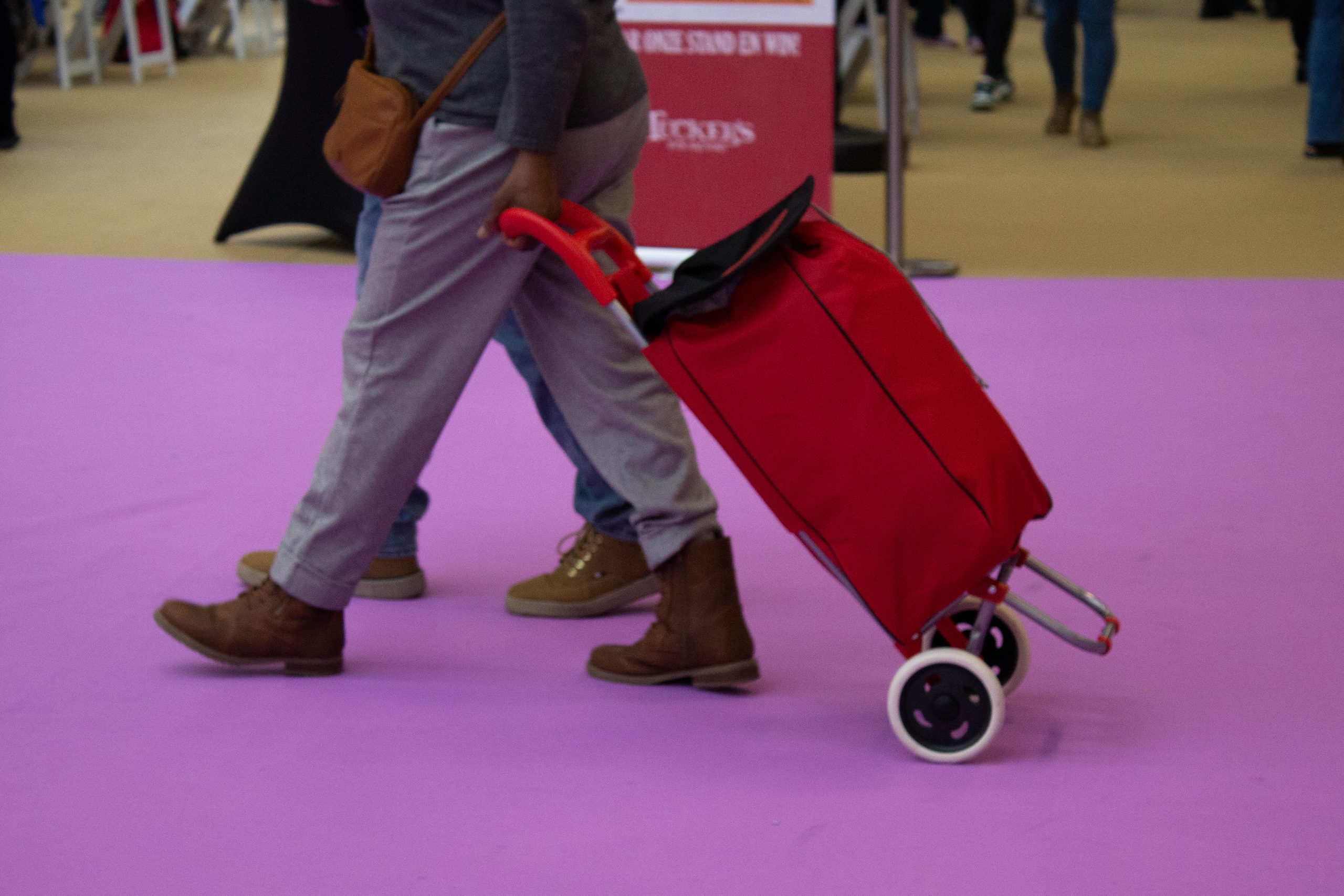
Shopping trolleys: a true part of the Huishoudbeurs culture. © Lara van der Weele
Despite the Huishoudbeurs trying it’s best to present itself as changing with the times, there’s still much to do. According to their own research ten percent of the fair attendees are men, and the average age of the visitors is 24 years old. But as you walk around, you’ll notice that the attendees of the day still fit the same demographic people always assumed this fair to be for.
Which, according to Van Nederveen Meerkerk, isn’t that odd. “An organization like that doesn’t benefit from changing the target audience. Because this group has proven again and again, throughout the years, that they want to come to this sort of thing. And that sells, so why would they change it? It’s all commercial.” Research of the Sociaal Cultureel Planbureu (SCP) shows that the difference of hours which men and women invest in household tasks is shrinking. “And even though that difference is smaller than the years before, I believe that we still have quite a long way to go with regard to equality between men and women and emancipation”, concludes Van Nederveen Meerkerk.

